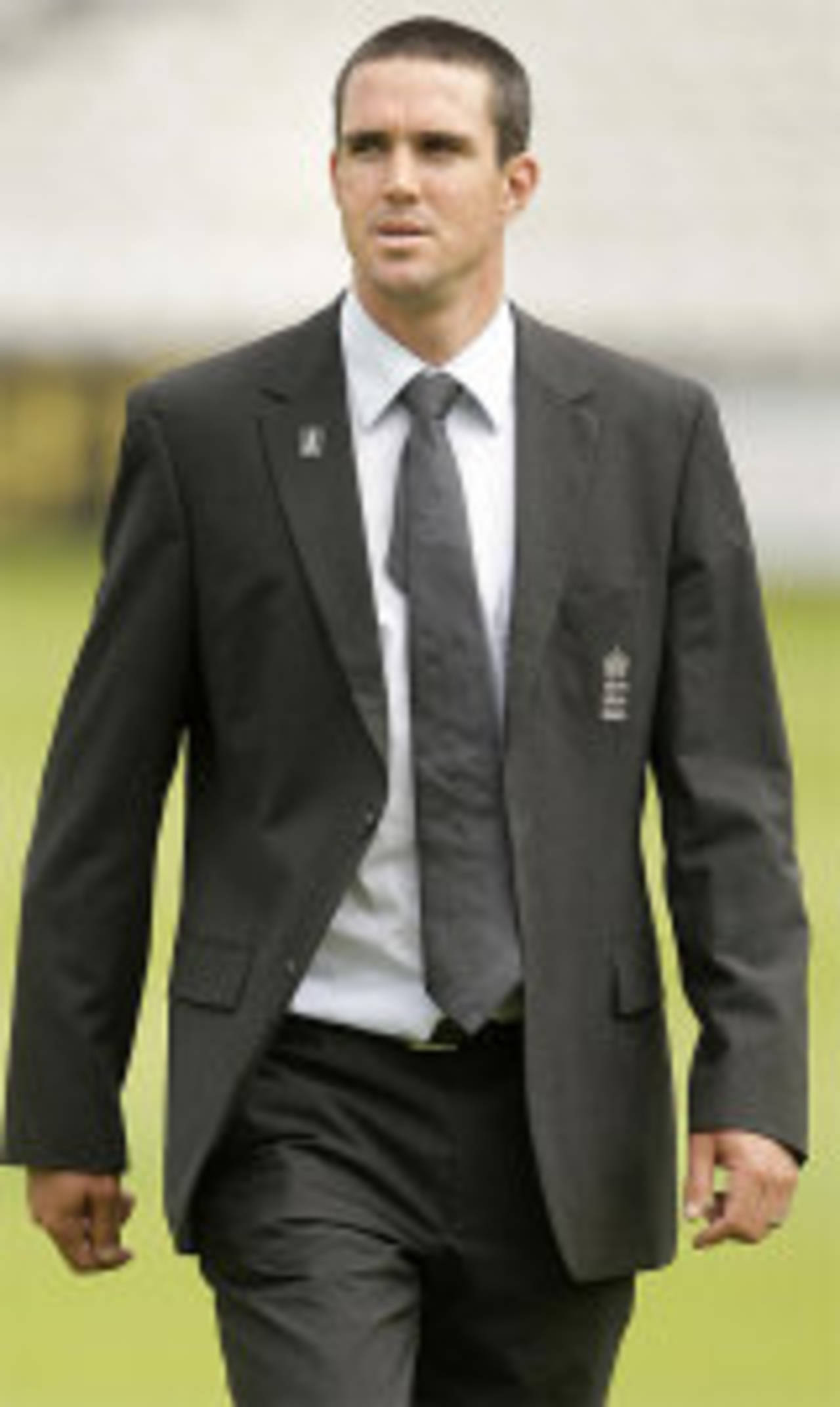Kevin on top
The refusal to surrender, the arresting arrogance, the almost imperious self-belief – it reminded me of Douglas Jardine
Ashok Malik
25-Feb-2013

AFP
Having appointed Kevin Pietersen as captain of England, Geoff Miller, chairman of selectors at the England and Wales Cricket Board (ECB), talked of seeking a leader who brought “fresh enthusiasm and ideas” and who could lead the team in all three formats: Tests, ODIs and Twenty20s.
As a huge Pietersen fan, I must confess to being deliriously happy. Not since Ian Botham has the most talented and exciting cricketer in the English team been appointed captain.
It was said of the Australians that they selected the XI best cricketers and then simply chose the best of the best as captain. The English did things differently – which is why Mike Brearley had a long, memorable spell as captain and even Keith Fletcher was at the helm for a tour of India, one which he probably shouldn’t have made even as a batsman.
On the other hand, John Inverarity – the bespectacled mathematics teacher and intellectual cricketer who was a sort of Australian Brearley – never came close to captaining the national team.
On its part, India have appointed all sorts of captains. In the case of Sunil Gavaskar, Kapil Dev and Sachin Tendulkar, and perhaps Dilip Vengsarkar and Rahul Dravid too, it gave the job to the most valuable player at the time. It didn’t work in four of the cases and in the fifth, Gavaskar, produced a successful but sometimes overly defensive captain. Kapil was called an instinctual captain – which meant he smiled and looked in command when the going was good but his standard response to a bad day was scowling and overbowling himself.
More often than not, political and factional considerations – and the insecurities of the cricket administrators – decided the choice of India captain. How else do you explain Azharuddin getting the job over Ravi Shastri?
Few facets of cricket attract as much controversy or variety as theories of captaincy. In recent years, inspired largely by the Australian model, more and more cricket teams have experimented with separate captains for Tests and one-day games. I suspect we’re close to the end of that phase.
The advent of T20 has changed things. Cricket has just about come to live with two captains and conceded this need not destabilise a country’s team(s) and confuse its players; three captains is quite another matter.
If England is glad Pietersen can claim a place in all three international teams (Test, ODI and T20), it would rather have him captaining all the year through, for all sorts of games. That was probably the clinching factor that swung the Indian T20 and ODI captaincy (and Test vice-captaincy) for Mahendra Singh Dhoni as well. Here was one cricketer who, the selectors were sure, could be part of all three XIs.
A Yuvraj Singh may never sustain as a Test cricketer. In 2007, when Dravid quit and a succession plan was being put in place, Virender Sehwag was out of form and so ruled out of contention (it may have been a different story if Dravid had hung on to the captain’s job for another year). Now, of course, Dhoni is almost certain to don Anil Kumble’s mantle as leader of the Test side. The change is probably no more than a season away.
It’s interesting that while the idea of captain Dhoni or captain Pietersen represents continuity and stability to administrators, neither has been around too long. Both came into their national XIs about three years ago and have, in a fairly short period, raced past more experienced colleagues who were fancied as future captains.
In their own way, Dhoni and Pietersen have displayed nerve and resilience. In the Pietersen’s case, the challenges were unique in that he changed countries and was called a mercenary by both his former South African compatriots and a sceptical English cricket fraternity. In one of his early series, he toured South Africa and was booed and barracked by a crowd that saw him as some sort of a traitor. He fought back with three hundreds.
The refusal to surrender, the arresting arrogance, the almost imperious self-belief – it reminded me of Douglas Jardine. Only those who don’t see Jardine though a narrow, one-dimensional prism will know what I mean, I suppose. Anyhow, I’ve admired Pietersen ever since. May he have a good run as captain.
Ashok Malik is a writer based in Delhi